That’s a very expensive pair of festive bratwursts
A married couple were left hundreds out of pocket after their Christmas market bratwurst ending up costing them more than £600.
And Brits have now realised just how easily how this could happen due to an often unknown rule with contactless payments.
For Laura Brumpton and her husband Alan, their festive trip to Nottingham’s Christmas markets with their two children ended up costing hundreds more than expected after two hotdogs cost them £618.
Okay, we get that Christmas markets aren’t the cheapest of experiences as it is. But that’s taking the p*ss, right?
Christmas gift card warning
Credit: ITV
0 seconds of 1 minute, 29 secondsVolume 90%
The money was taken out of 37-year-old Alan’s bank account after he paid via contactless. Double checking the amount, he noticed that a whopping £618 was taken instead of the £18, with each hotdog costing £9.
“They were the most expensive hotdogs ever,” Laura, 34, said.
“I was very shocked. I just couldn’t believe it. £18 just for two hotdogs is a lot of money as well.”

Laura and Alan Brumpton were left hundreds out of pocket (Kennedy)
The woman on the market stall was immediately apologetic when she issue was brought to light, refunding Alan £600 and giving him a receipt as proof of the transaction. But a week on and the money still hasn’t cleared in his bank account.
With contactless payments, there is a limit placed on debit and credit cards of £100.
“He checked his bank and it went straight away. I thought it would bounce straight away. I did think there was a £100 limit,” Laura explained.
The same was said by many on social media after their experience went viral, with Laura posting on TikTok about the incident with the caption: “Imagine buying two hot dogs and it costing you £618.”
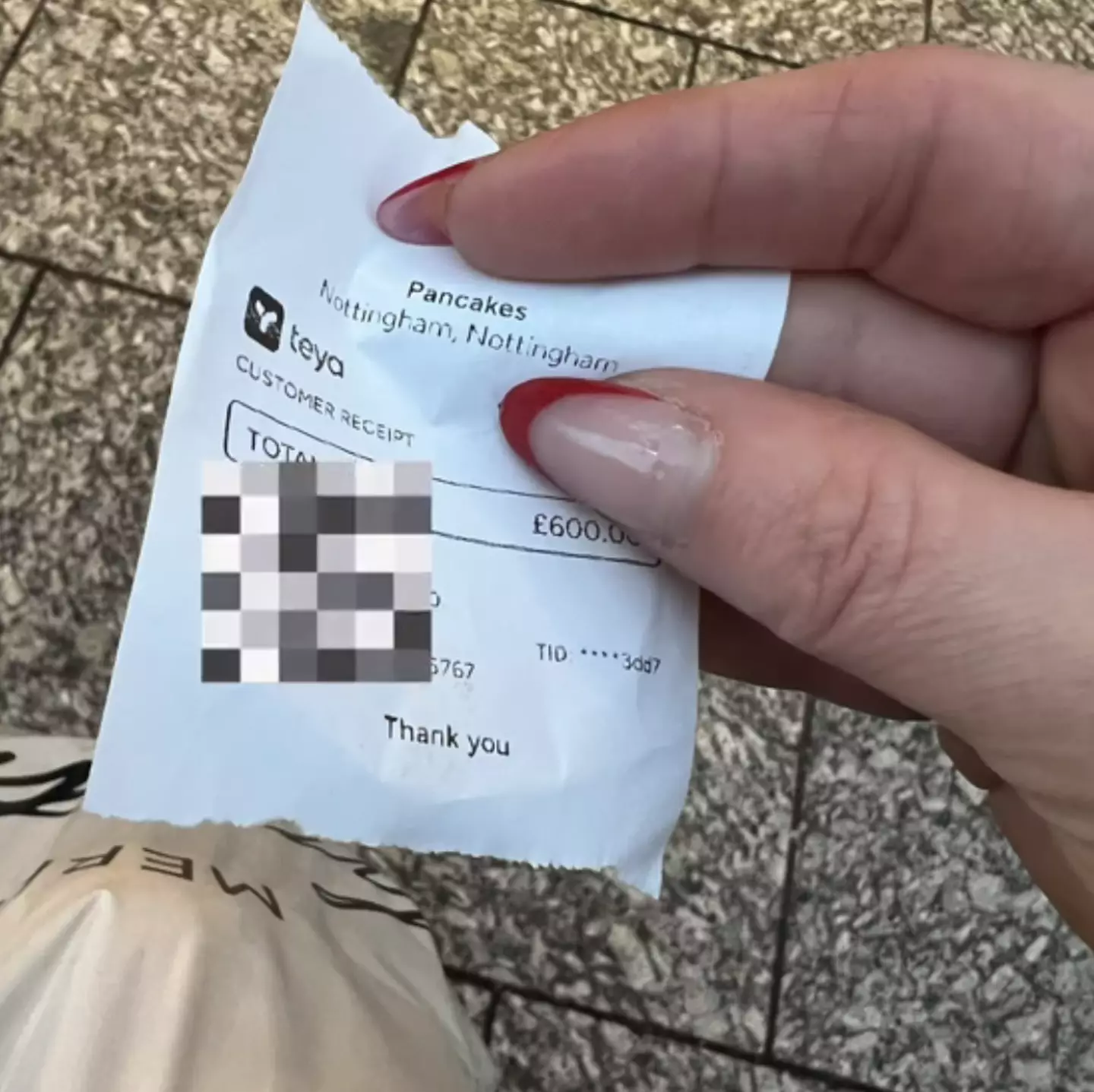
The refund receipt (TikTok / @isleclean)
Others thought the same as Laura on the limit, with one saying: “Isn’t there a £100 limit for contactless?”
And a second said: “What’s confusing is that for anything over £100 you have to put your card in the machine, so I don’t understand.”
Well, others were quick to point out a major flaw in the £100 limit. And it was one that Alan fell foul of.
Using his debit card stored on his iPhone, Alan used his Apple Pay to tap and pay the bratwurst bill.
With Apple Pay and its rival products such as Google Pay and Samsung Pay over on Android devices, you can store your debit or credit card details virtually and tap to pay with no cash limit on how much it’ll approve unlike with a physical card.

Laura shared their story on TikTok (Kennedy)
Laura herself took to social media to explain the mix up. She wrote: “It was with Apple Pay, the machine wasn’t handed to my husband to see the fivers so he just tapped his phone, not thinking for one minute it would go through as we thought it would be a £100 limit.
“But the bank said different, it was the lady who notices she had taped £618 into the machine.”
Others said: “Apple and Google Pay do not have a £100 limit for phones. The limit only applies to contactless card.”
Laura had said that the vendor claimed their refund would take around ‘an hour’ to process but the couple are still £600 down; not exactly great in the run up to Christmas.Featured Image Credit: Kennedy News and Media / TikTok / @isleclean
Topics: UK News, Christmas, Apple, Google, Technology, Samsung, Phones, Money, Viral, Cost of Living, Social Media

Tom Earnshaw
Advert
Advert
Advert
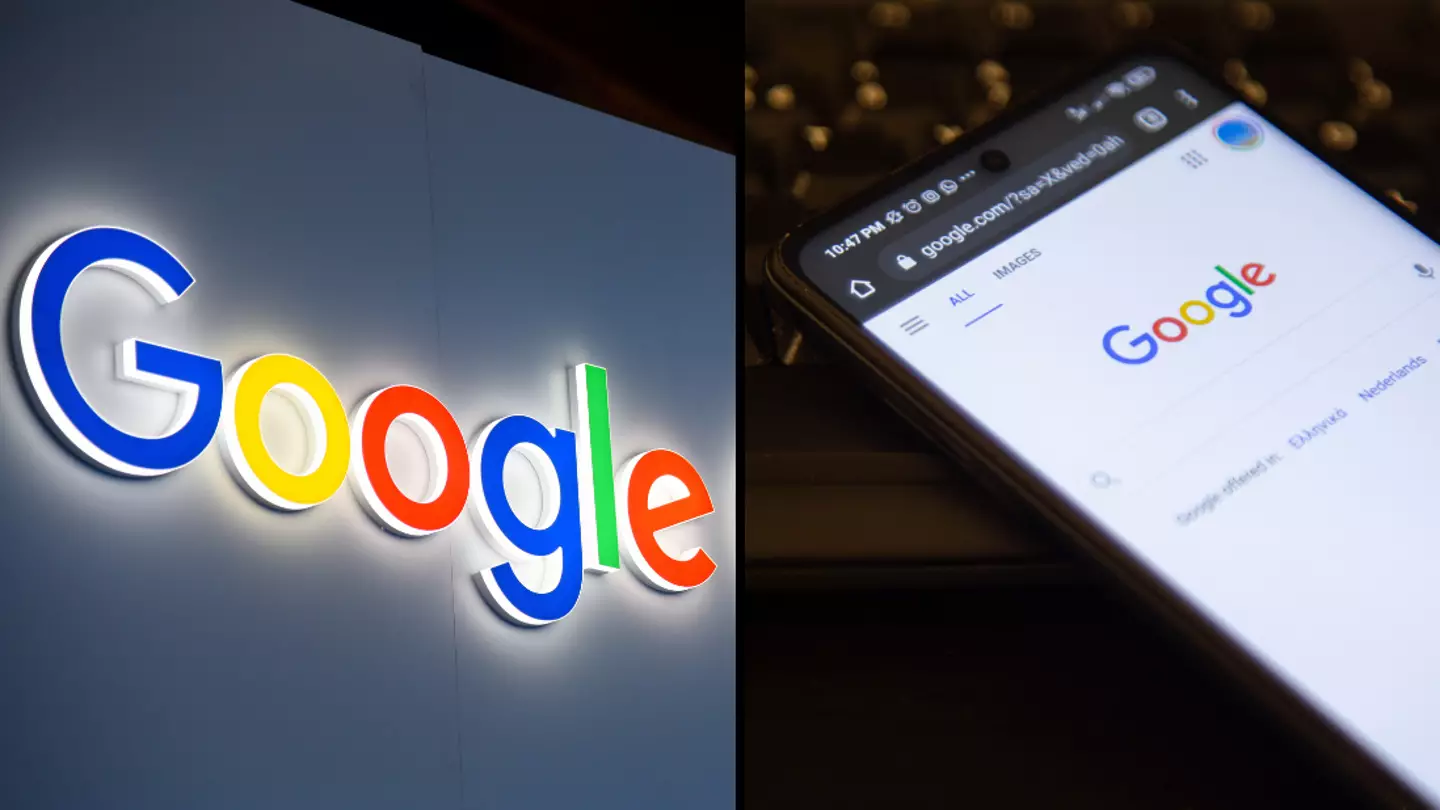
Published 12:18 23 May 2024 GMT+1
Five things Google has to do after $700m payout to Android users
The Google Play Store has come under fire for the cut it was taking from Android users’ purchases

Google revealed it was making five big commitments in the aftermath of settling a huge lawsuit that’ll see it pay out a massive $700 million (£550 million).
Dozens of states in the USA took on the tech giant last year, launching a significant lawsuit over what was described as an abuse of power by Google.
It was all to do with Android users and the Google Play Store, with the vast majority of people using that OS also opting to shop through Google’s app, movies, and games store.
Google’s Tricky Interview Question
Credit: TikTok/@hrbitch
0 seconds of 23 secondsVolume 90%
But Google had been taking a pretty big chunk of every payment that was being processed via the Play Store. Fees of between 15% and 30% were being applied to every transaction by Google.
Before the case truly got going, Google settled the case outside of court, offering up a huge $700m settlement figure.
Divided between Android users and the American states behind the lawsuit, some $630m is earmarked for those with the phones and $70m for the states.
With around 127 million Americans entitled to a claim, it means the average compensation will only be $4.41 with a peak of $17.
“This settlement builds on Android’s choice and flexibility, maintains strong security protections, and retains Google’s ability to compete with other OS makers, and invest in the Android ecosystem for users and developers,” Google said after the settlement was agreed.
As part of the settlement, the California-based firm agreed to five big things going forward.
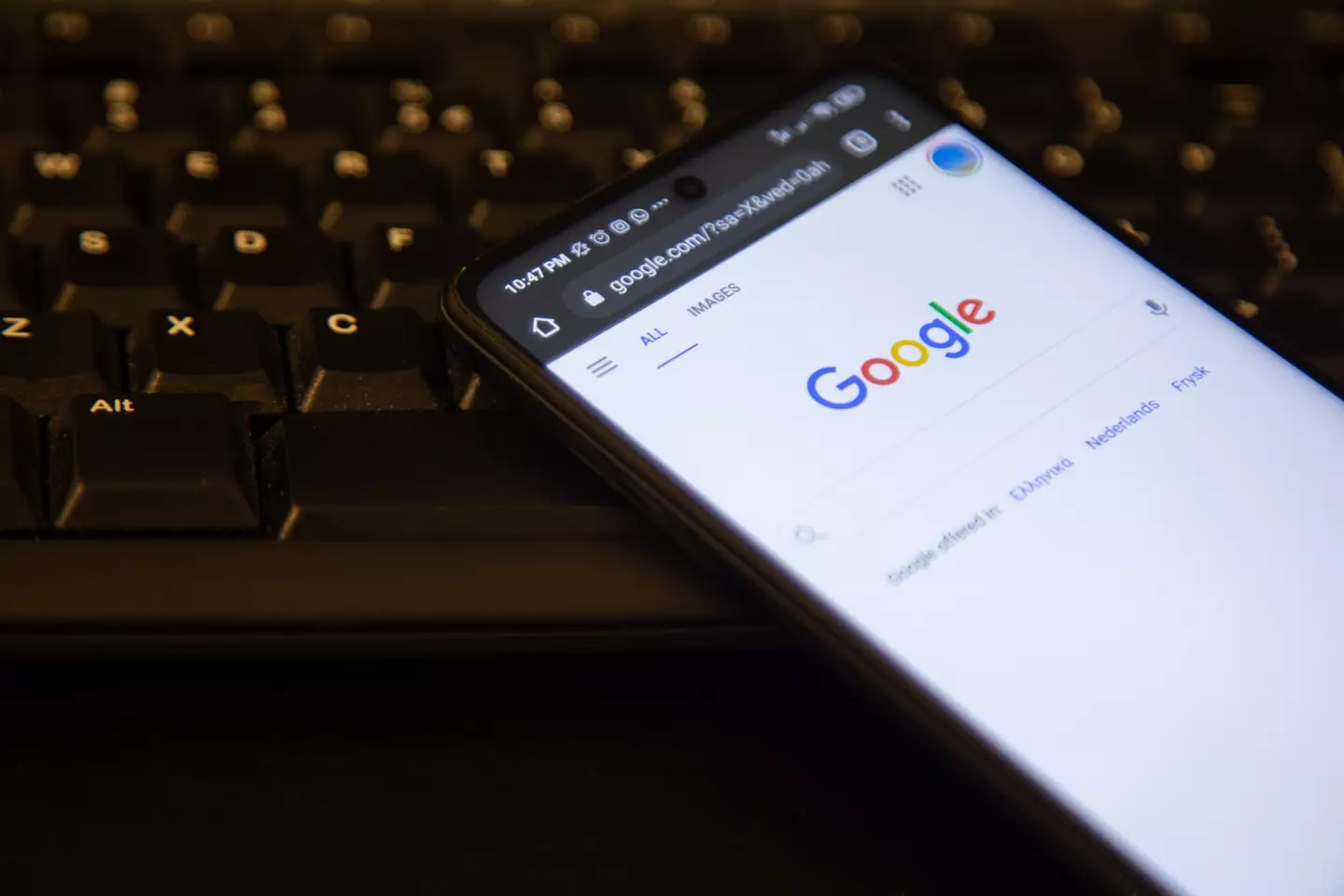
Google on an Android phone (Nicolas Economou/NurPhoto via Getty Images)
Giving Android users a choice
Google said it remained committed to app stores other than the Play Store being installed on Android devices.
“We have always allowed alternative app stores to be preloaded onto Android devices and for users to download alternative app stores directly. In fact, most Android devices ship with two or more app stores preloaded,” it said.
“The settlement with the attorneys general makes clear that OEMs can continue to provide users with options out of the box to use Play or another app store.
“We recently implemented features in Android 14 that will make third-party app stores work even better for users and let third-party app stores update apps more easily.”

Google has paid out a tonne of compensation (Beata Zawrzel/NurPhoto via Getty Images)
Sideloading
This is a focus on allowing Android users to be able to install apps directly from a developer, therefore bypassing the need for an app store.
Google said: “Unlike on iOS, Android users have the option to sideload apps, meaning they can download directly from a developer’s website without going through an app store like Google Play.
“While we maintain it is critical to our safety efforts to inform users that sideloading on mobile could come with unique risks, as part of our settlement we will be further simplifying the sideloading process and updating the language that informs users about these potential risks of downloading apps directly from the web for the first time.”
Choosing how to bill
Developers can now use other payment systems outside of Google’s own options.
“App and game developers will be able to implement an alternative billing option alongside Google Play’s billing system for their US users who can then choose which option to use when making in-app purchases,” Google said.
“We have been piloting user choice billing in the US for over a year and will now expand this option further.”
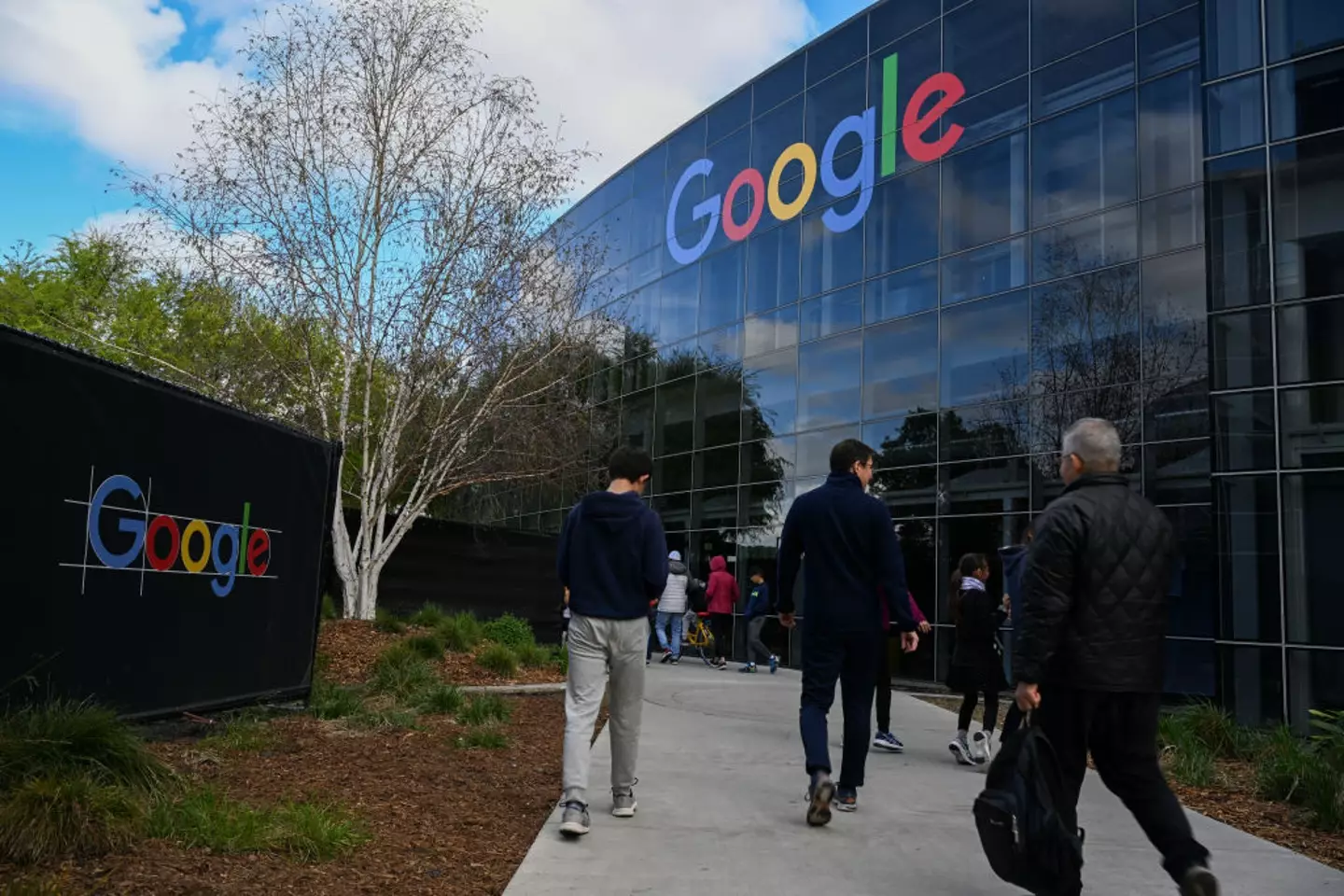
Google HQ in California (Tayfun Coskun/Anadolu via Getty Images)
Pricing
App developers can now give Android users different pricing options within the Google Play app when buying something.
Google said: “We have always given developers more ways to interact with their customers than iOS and other operating systems. For example, Google Play allows developers to communicate freely with their customers outside the app about subscription offers or lower-cost options available on a rival app store or the developer’s website.
“This openness has spurred competition and benefited consumers and developers. As part of user choice billing, which we’re expanding with today’s settlement announcement, developers are also able to show different pricing options within the app when a user makes a digital purchase.”
Settlement fund
The $700m fund is to be supplied to the courts to then distribute to Android users and states.
The tech company said: “Google will pay $630 million into a settlement fund to be distributed for the benefit of consumers according to a Court-approved plan and $70 million into a fund that will be used by the states.”Featured Image Credit: Ramon Costa/SOPA Images/LightRocket via Getty Images/Nicolas Economou/NurPhoto via Getty Images
Topics: Google, Money, Phones, Samsung, US News, Technology

Tom Earnshaw
Advert
Advert
Advert
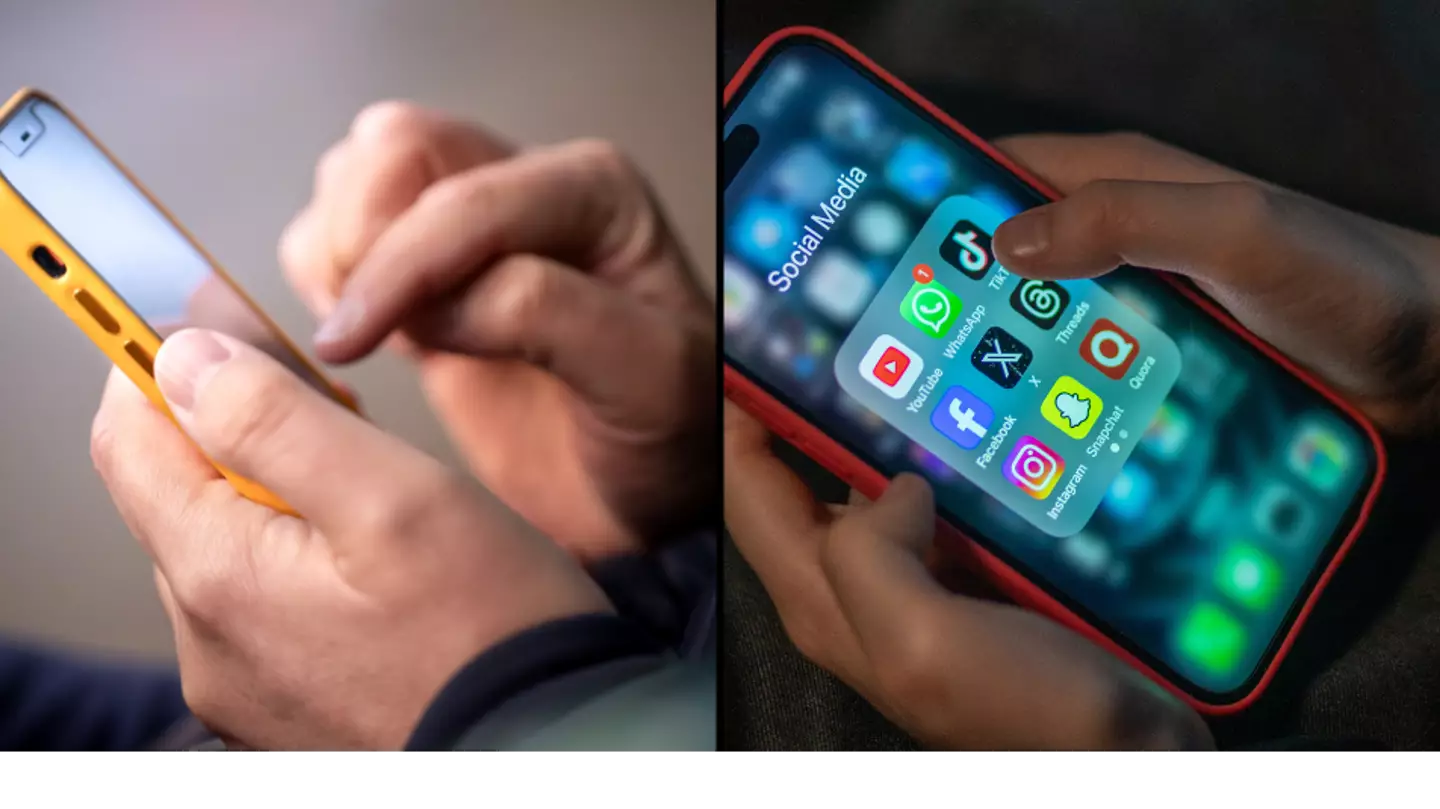
Published 10:25 12 Jan 2024 GMT
Experts warn people to delete apps that are ‘spying on you’ using ‘one day rule’
Apps on your phone might be slowing down its performance and using your information.

There are many things that average phone users may not know about their devices, things that may never even cross the mind until mentioned.
Well, make room for more information because there is something about your phones that you may want to know – and it could improve its performance and save your information from being used.
iPhone battery hack
Credit: TikTok/android2tech
0 seconds of 17 secondsVolume 90%
We have all probably downloaded loads of different apps for one reason or another on our iPhones or Androids, but the problem lies within just how many of these apps we actually use.
If you are someone who has a lot of unused apps, you may want to pay attention to what security giant Kaspersky had to say about it.
A new memo from the company has warned users to delete their old apps, saying: “You probably have apps on your smartphone that you haven’t used in over a year,”
“Or maybe even ones you’ve never opened at all.
“Not only do they take up your device’s memory, but they can also slowly consume internet traffic and battery power.”
The security memo continued: “And, most importantly, they clog up your interface and may continue to collect data about your smartphone – and you.”
It may seem like a chore to find these unused apps and even more of a chore to delete them all though, which makes doing so off-putting.
However, Kaspersky has suggested a way around this, encouraging phone users to follow the ‘one a day’ rule, allowing you to be freed from unused apps within just a few weeks.
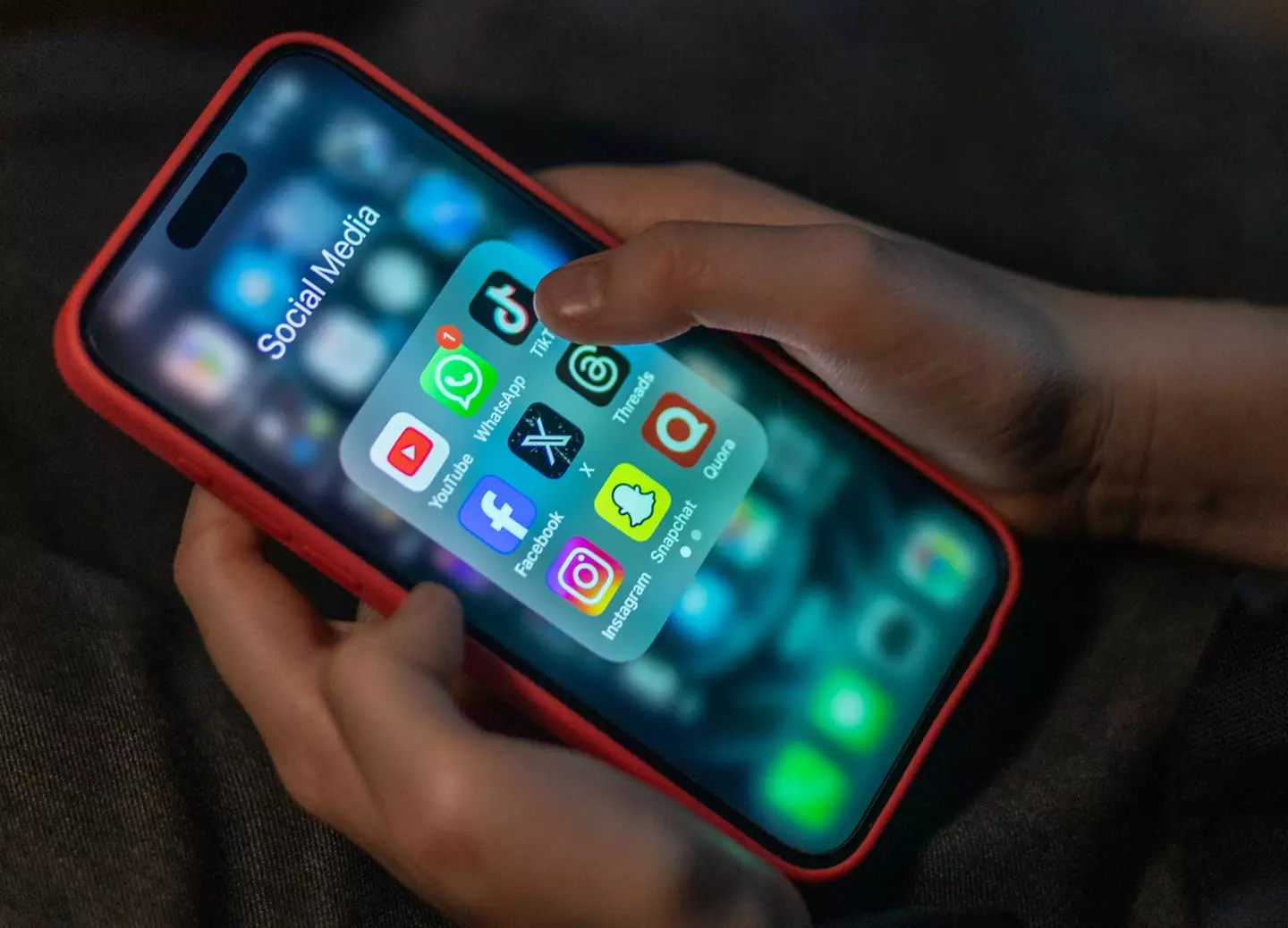
Matt Cardy/Getty Images
To delete an app on the iPhone, find the app on your home screen, touch and hold down the icon and tap ‘remove app’.
If you are an Android user, go to the Google Play store, tap the profile icon in the top right, go to Manage Apps and Devices > Manage.
Tap the name of the app you want to delete and choose uninstall.
For apps that are pre-installed on your phone and therefore cannot be deleted, you can disable them instead to stop it from running in the background.
It’s as easy as that, and deleting just one app everyday could vastly improve the performance of your phone and stop your data from being harvested – which is a win all round if you ask me?
So, stop holding onto that app you downloaded to organise your schedule (that you never even opened) or that game you promised your friend you’d try out, and delete them.
You’ll be better off for it.Featured Image Credit: Getty Stock Image / Matt Cardy / Getty Images
Topics: News, Phones, Technology, Apple, Google, Samsung

Joshua Nair
Advert
Advert
Advert

Published 19:35 11 Dec 2024 GMT
How much you should spend on your partner at Christmas as UK average is revealed
Christmas is coming, so how much should you spend on your partner?

Christmas Day is only two weeks away, which means you’d better get cracking if you haven’t even thought of what to get that special someone in your life for a gift.
You need to bear in mind the time it’ll take you to think of something, as well as how long it might be until it’s delivered as you don’t want to get to the big day and have to say ‘sorry darling, it won’t be here until the 27th’.
But how much should you be spending on that special person in your life?
Spend too much and you might embarrass them with your level of financial gifting, or show them up when they didn’t get you nearly as much as you bought for them.

“These are from us. I say us, I bought all of them except the one in stripey wrapping paper” (Getty Stock Photo)
Spend too little and I’m sure you can guess what sort of backlash you might face for that, you’ll have to do better at Christmas than getting your partner a few bits and bobs.
To give you an idea of the kind of spend you might want to be aiming for, a study from website CouponBirds found that the average Brit spends £144.37 on gifts for their partner.
That’s more than the average amount of £128.49 someone would spend on a close family member.
According to the survey men outspent women by about £50 on average and the most generous gifting cohort were the 35 to 44-year-olds, as their average spend on their partner rose to £165.71.
However, while you now know how much you maybe need to be spending on your partner it’s worth remembering that three quarters of Brits think ‘it’s the thought that counts’ when it comes to gift giving.
Gifts that have some kind of meaning behind them are looked upon far better than ones which cost a veritable fortune.
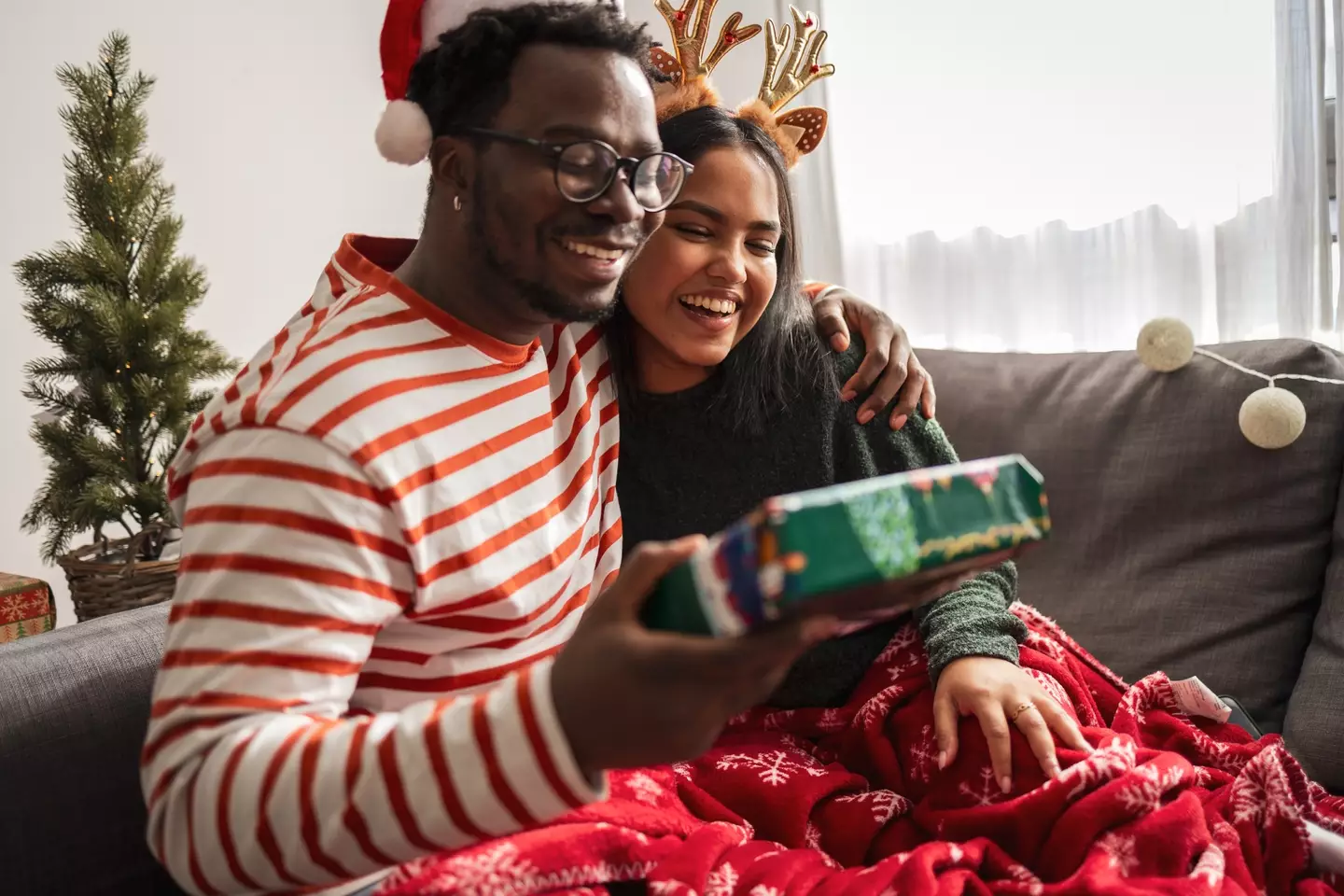
“Oh babe, I feel like you’ve spent just the right amount of money on me!” (Getty Stock Photo)
As for what to get someone, you might be interested in the ‘want, need, share, read’ method suggested by a gift giving expert at Personalised Bee.
Basically, if you know your partner wants something then buying them a present ought to be pretty easy as you just get them that, as long as you remember to listen to them telling you what they want.
If you don’t know what they want, and perhaps they don’t know what they want, then try getting them something they need, think about things they’ve had to do without, or if there’s something they use regularly that could do with a bit of a refresh.
Should you still be stumped for gift ideas this Christmas then the next option ‘share’ might help, as you could get them something they can share over the festive season.
Meanwhile, if all else fails just get them a book from an author they like or sign them up to a magazine they’re interested in. Best hop to it.Featured Image Credit: Getty Stock Images
Topics: Christmas, Sex and Relationships, Money, UK News

Joe Harker
Advert
Advert
Advert
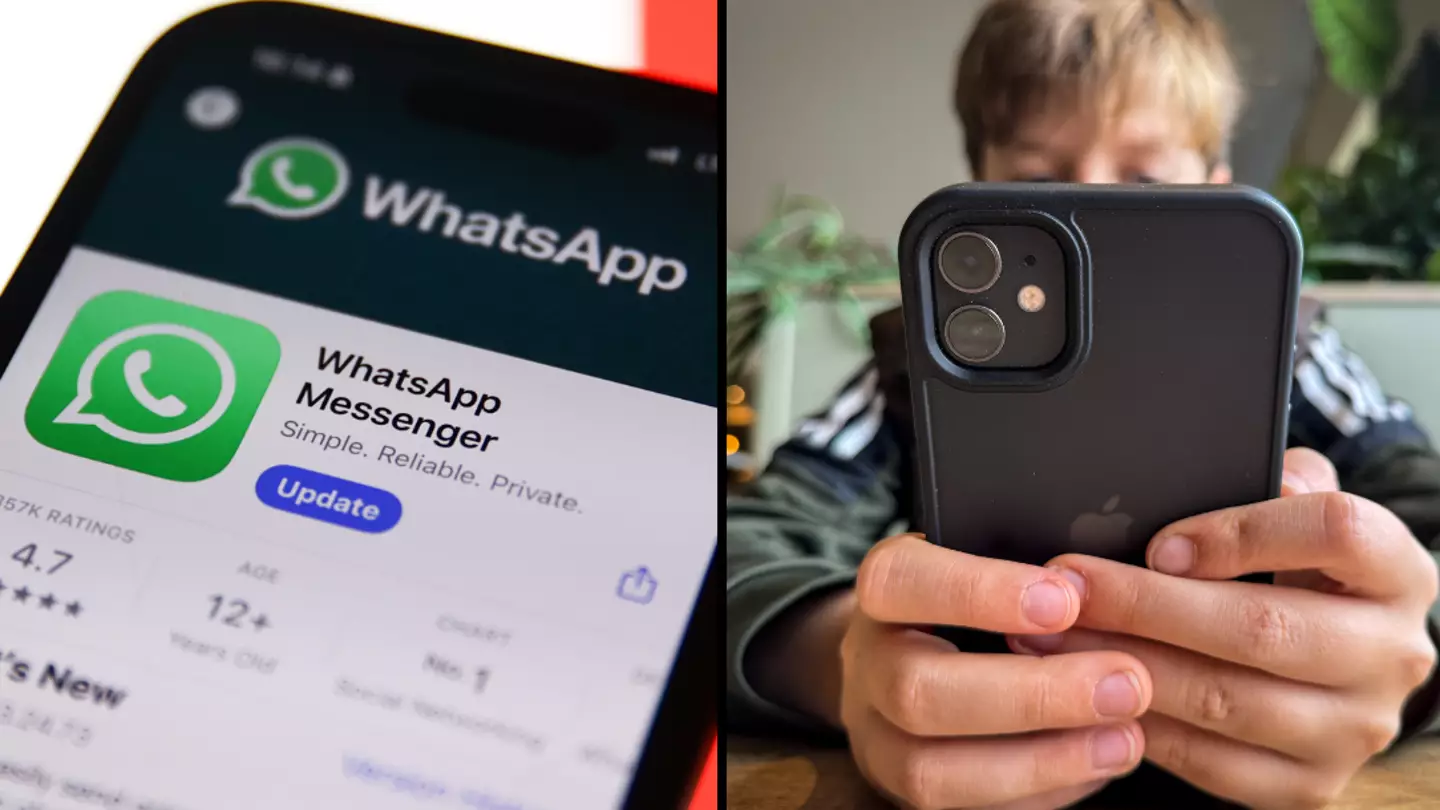
Published 15:00 26 Mar 2024 GMT
Major privacy warning to everyone that uses WhatsApp ahead of update
Major changes are coming to WhatsApp this year

WhatsApp is used by almost one third of the world’s population, with two billion of us opting to use it to send our loved ones, mates, and colleagues messages on a daily basis.
But now, a warning has been issued with the app as it is set to undergo revolutionary changes this year.
Bought by Facebook (now Meta) in 2014, the messaging app is valued at a staggering $19 billion.
WhatsApp announces message editing feature
Credit: Instagram/@whatsapp
0 seconds of 18 secondsVolume 90%
The app gives users the ability to text, video chat, and voice message others whether in private or group chat.
Now, a massive update is expected on the app after major rule changes that will take place in just a few weeks time.
We’re on about the EU’s new Digital Services Act and Digital Markets Act, which will become law on 11 April.
As a result, Meta is in the process of updating its Terms of Service and Privacy Policy within the European Region.
The EU’s new law means that sending messages between different apps will become a requirement.
This means WhatsApp users will be able to message people not using WhatsApp, as first reported by WABetaInfo. The same will apply for other big tech messaging apps too.
Meta has confirmed it will ‘enable interoperability with third-party messaging services’ to ‘comply with a new EU law’.
WhatsApp is renowned for using end-to-end encryption, which means that your conversations are private and not even a tech giant like Meta can access them – even if they wanted to.
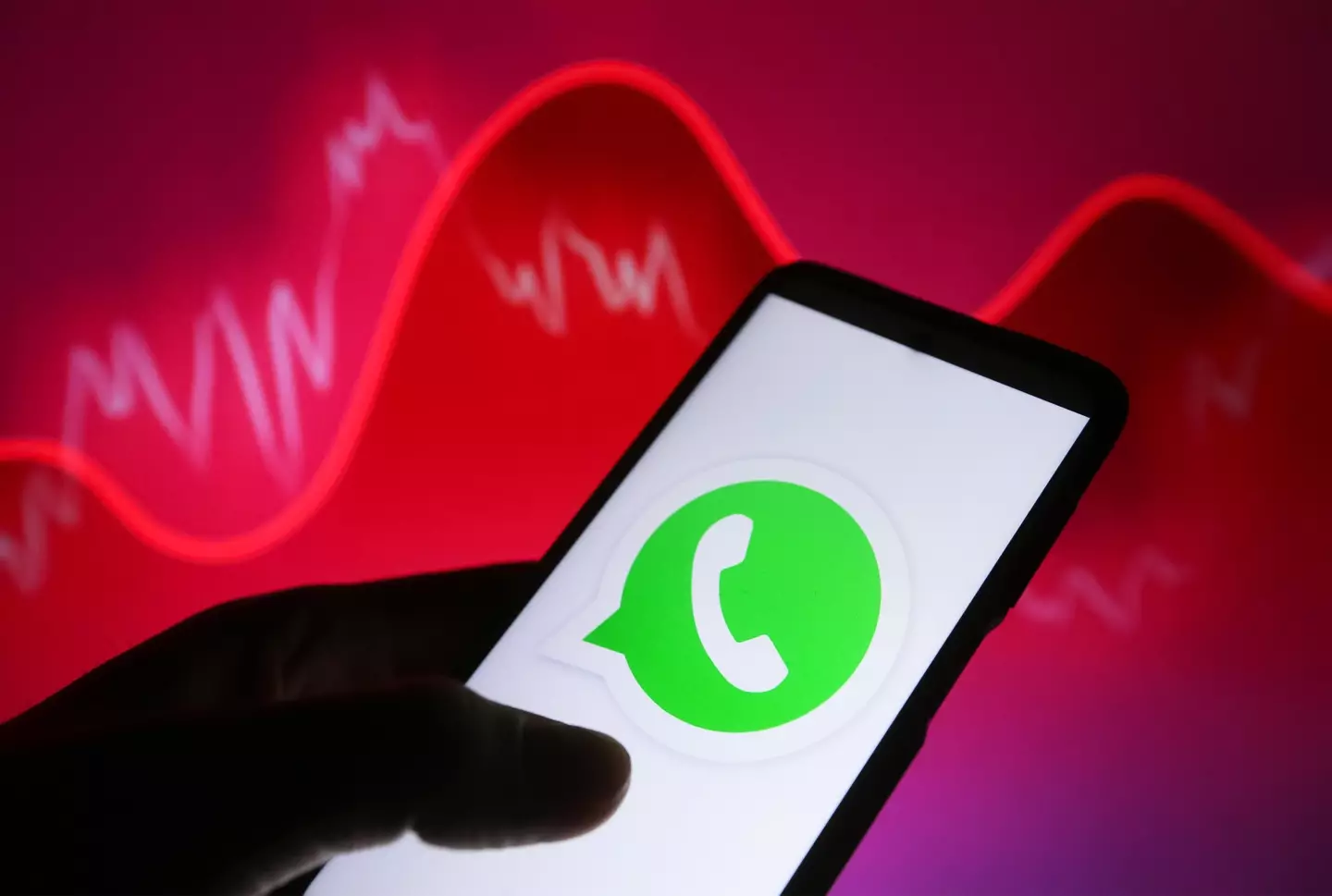
Pavlo Gonchar/SOPA Images/LightRocket via Getty Images
Google Messages has the same policy, as does Facebook Messenger, iMessage, and Signal.
And WhatsApp is reportedly going to give users three warnings before they decide to turn this on on their own device, due to security worries the new rules could bring about.
The first is expected to read: “You’re messaging someone outside of WhatsApp. Third-party apps may use different end-to-end encryption.”
The second adds: “Spam and Scams may be more common in third-party chats.”
And a third will say: “Third-party apps have their own policies. They may handle your data differently than WhatsApp does.”
Should the feature be turned on, it means WhatsApp users would also be able to message Telegram users.
Users can also transfer their WhatsApp to Telegram if they so wish – something that has been reported on widely in recent weeks – but this has come with a warning.
It should be used with caution given Telegram’s stance on end-to-end encryption.
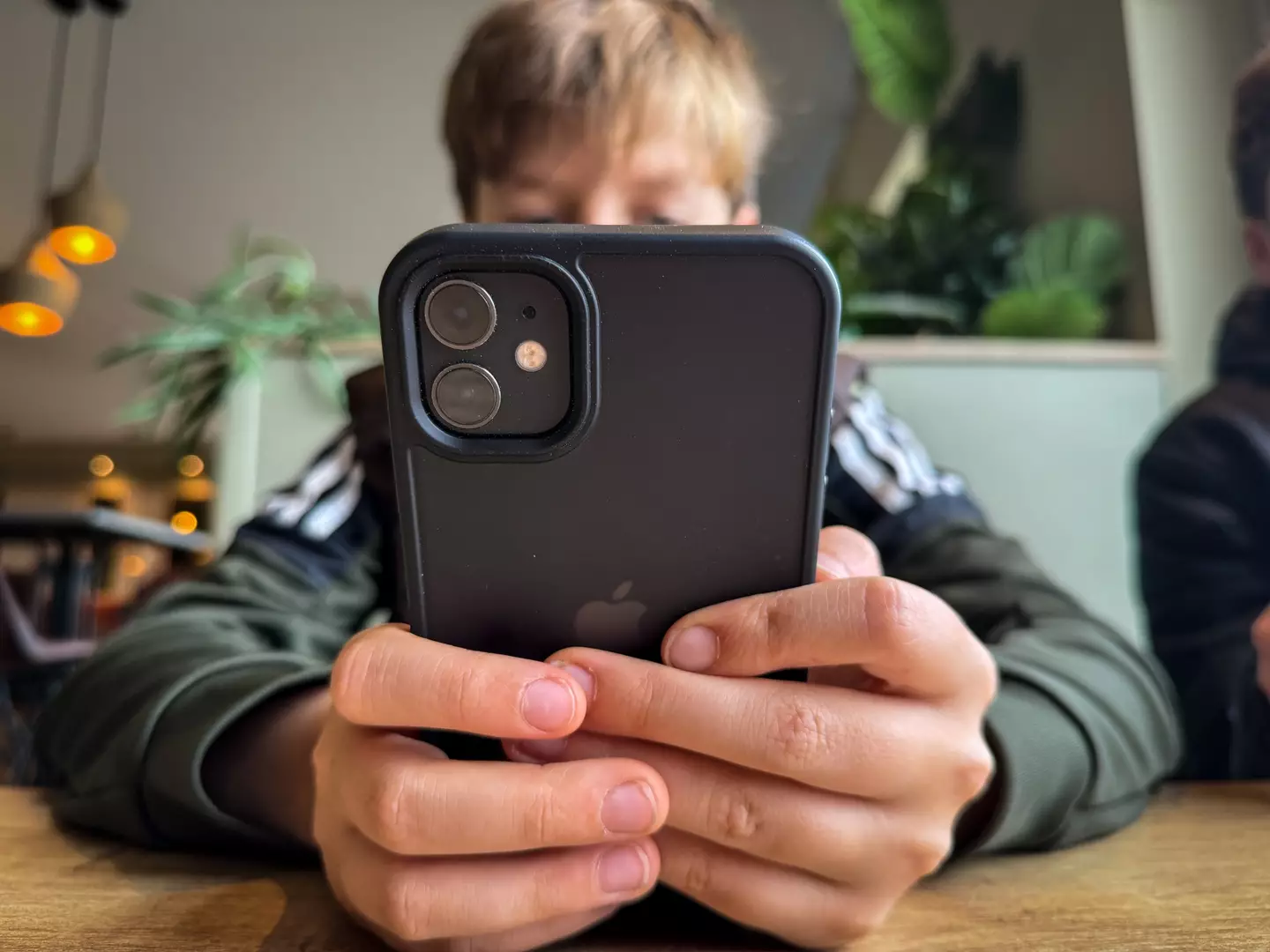
Matt Cardy/Getty Images
First thing’s first, Telegram does have end-to-end encryption. But it’s not automatically applied to all chats.
In fact, it is only applied for one-to-one calls and messages if you select the ‘Secret Chats’ option.
So if someone uses ‘Regular’ chat options, your messages aren’t protect to the same degree as sticking to WhatsApp.
Security and surveillance writer Zak Doffman, from Forbes, said: “Moving chats from WhatsApp, which is end-to-end encrypted by default, over to Telegram, which isn’t, is a major security no-no, I’m afraid.
“Especially group chats comprising otherwise secure content from multiple users.”
And security company Kaspersky says: “By default, Telegram chats do not use end-to-end encryption, and nor does the messenger inform users about the secure chat option.”
So if you’re going to make the move to Telegram from WhatsApp, make sure you go Secrets Chats to keep your privacy the same as before.
LADbible has contacted Meta for comment.